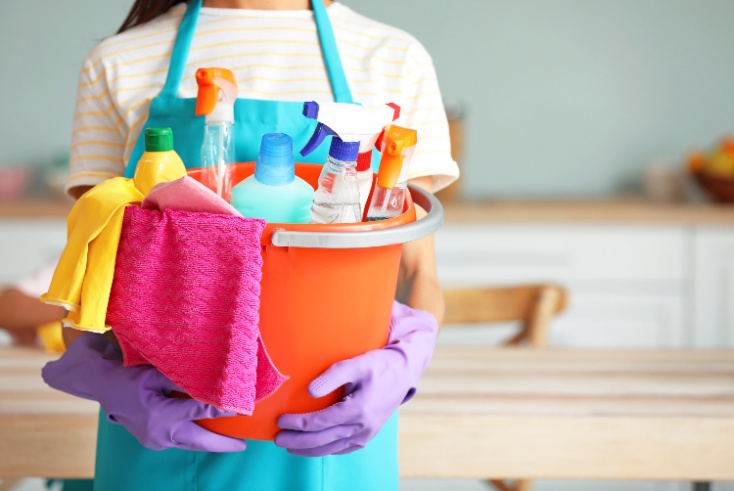Why we need to talk about equality in the home

Opinion: Career Leaders
Workplace equality can only start with meaningful conversations about different lived experiences, and the unfair division of labour at home warrants a much bigger part of the conversation.
We’re a long way from gender equality in the workplace. According to the All In Census 29% of women believe their gender is a hindrance to career progression in the industry, more than twice the proportion of men.
I believe there is a piece of the puzzle that isn’t being addressed. There is still a tremendous amount of unfair division of labour in the home.
According to the National Centre for Social Research study on Gender Roles 63% of women report doing more than their fair share of household labour, compared with 22% of men. Women are more likely to do the washing and ironing, household cleaning and make the evening meal.
The emotional workload
And these are just the obvious tasks. If you add in cover for child sick days, homework support, being a general sympathetic ear, family diary coordination and the endless amount of school comms to the mix, it’s easy to see why the emotional workload can be overwhelming.
If these family responsibilities were divided more fairly it would free up vital brainspace for women to progress at work.
You might argue that there is no role for workplaces to intervene here. It’s a family matter. But I say equality starts with meaningful conversations about different lived experiences, and this is a lived experience that warrants a much bigger part of the conversation.
Plus it’s only policy changes like shared parental leave and managers’ understanding that maybe dad would like to take some time off to cover a child’s sick day that will drive tangible change.
Culturally ingrained biases
The bias towards women undertaking these roles is deeply ingrained. My mum recalls learning about housework during her school days. The girls were taken off for practical classes!
We have come a long way from this but it is still very much the default for a school to call mum when a child gets sick.
We’ve been battling with this bias for six years in our household. When my daughter was three my husband stopped work for health and quality of life reasons. He’s in charge at home and undertakes a large proportion of running things and taking care of our daughter. But it’s still the case that the teacher looks to me on parents’ evenings, when it’s actually my husband that provides homework support.
At various stages both of us have felt the weight of society’s expectations about the roles that we should be fulfilling, and whilst we both revel in going against stereotypes even our own expectations have worked against us at times.
We both agree there has been much renegotiation and feelings of discomfort in the process of building a new way of doing things. For my part I’ve had to manage the guilt about what I thought I should be doing as a mum. I’ve had to let go and allow someone else to do things differently.
This I think is one of the biggest internal challenges that women face. I often hear my female network lamenting that things don’t get done and it’s easier to just do it yourself.
Unfair division of labour in the home
I think the majority of women are annoyed about their partners’ lack of contribution at home; frustrated by the never-ending list that soaks up their energy and doesn’t get recognised.
Whilst I feel blessed that I really can’t complain. I find it fascinating that it took us years to remodel a new way of doing things in our house. Maybe I’m just a control freak but I also think there are other forces at play.
I’ve often felt conflicted, to be working against the grain of society and my own internalised expectations has been challenging. Yes I know lots of working mums — it’s the norm these days — but very few people who have swapped roles entirely.
My observation is that most mums do both jobs, regardless of salaried contribution, and the statistics back this up. According to Pew Research, even in ‘egalitarian marriages’ which they define as those where husbands and wives equally contribute to the household earnings, wives are still spending more than double the amount of time on housework than their husbands.
Why does this pattern of domestic labour still continue? Some psychologists have argued the case for affordance theory, the idea that we experience objects and situations as having actions implicitly attached. The explanation here is that women look at a surface and see an implied action — ‘to be wiped’ — whereas men may just see a crumb-covered countertop.
I’d like to believe this wasn’t true! Instead I prefer to look to behavioural economics arguments such as status quo bias. This is the idea that we are more inclined to continue to do things the way they have always been done, rather than change our behaviours.
The thankless invisible work
The truth is we all need to do the work to go against the grain of behaviour. We need more role models of dads who get involved across the board. And we need more mums who can let go of society’s expectations and ignore the table that needs wiping for just long enough for someone else to do it.
A fairer division of labour isn’t just about getting involved in the visible school pick ups, it means taking on some of the more monotonous invisible work of running a home — the housework, the admin and the emotional work of being the one that is always there.
I believe more candid conversations about these lived experiences are the only way to rebalance the division of labour in the home, freeing up more time for women to progress at work.
I particularly like Brené Brown’s take on this topic. She advocates for an ongoing conversation with your partner about how you divide up responsibilities.
One that acknowledges that fluctuating energy levels mean it’ll never be 50/50, but you mutually agree to step up and carry the load when one of you is depleted; whilst also working together to resolve the division of labour when both of you have nothing in the tank.
 Anna Sampson is the founder of Anna Sampson Consulting and was previously insight and strategy director at magazine marketing body Magnetic.
Anna Sampson is the founder of Anna Sampson Consulting and was previously insight and strategy director at magazine marketing body Magnetic.
Career Leaders: The Media Leader‘s weekly supplement with thought leadership, news and analysis dedicated about media careers, training, development and wellbeing.



